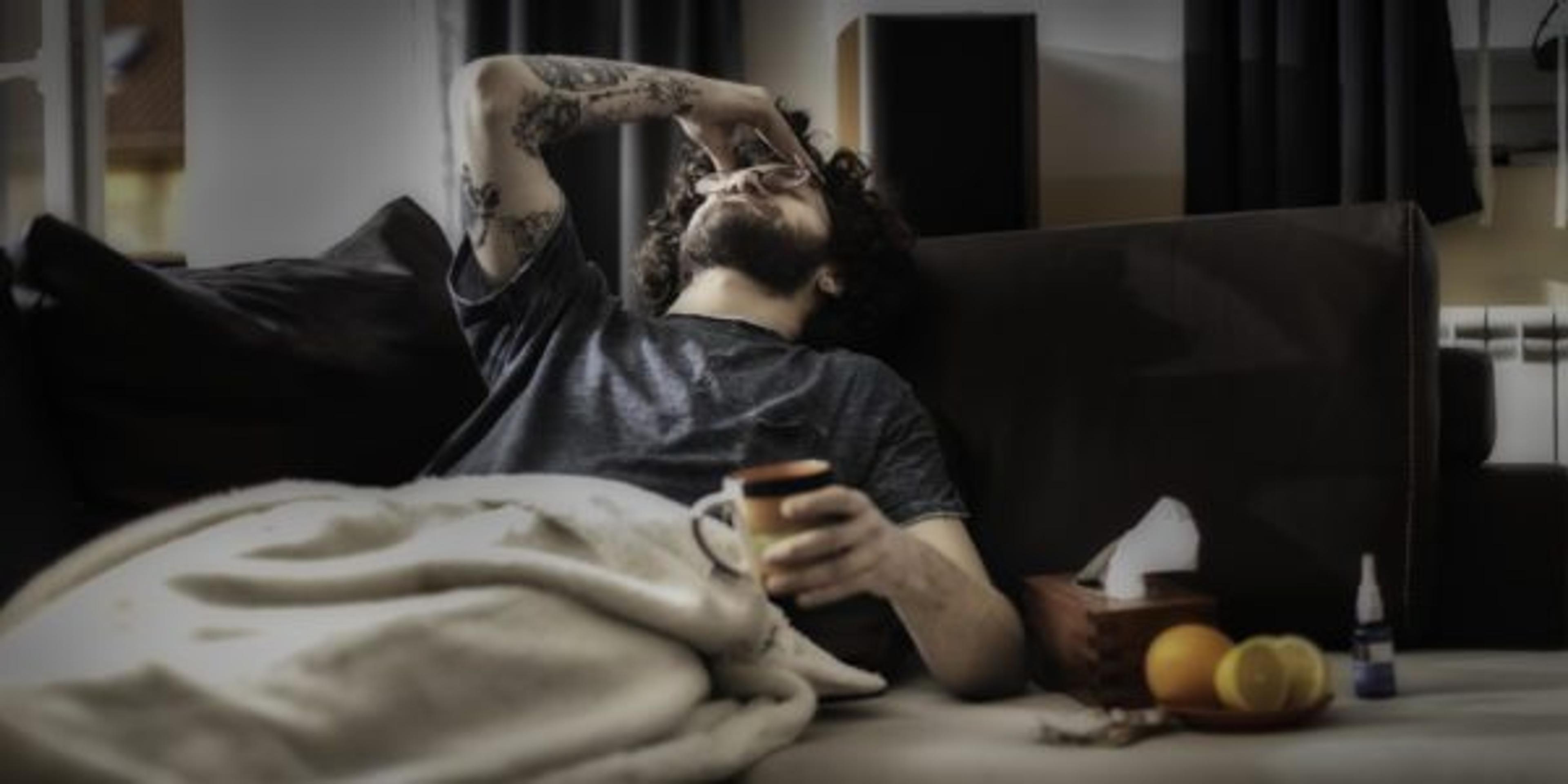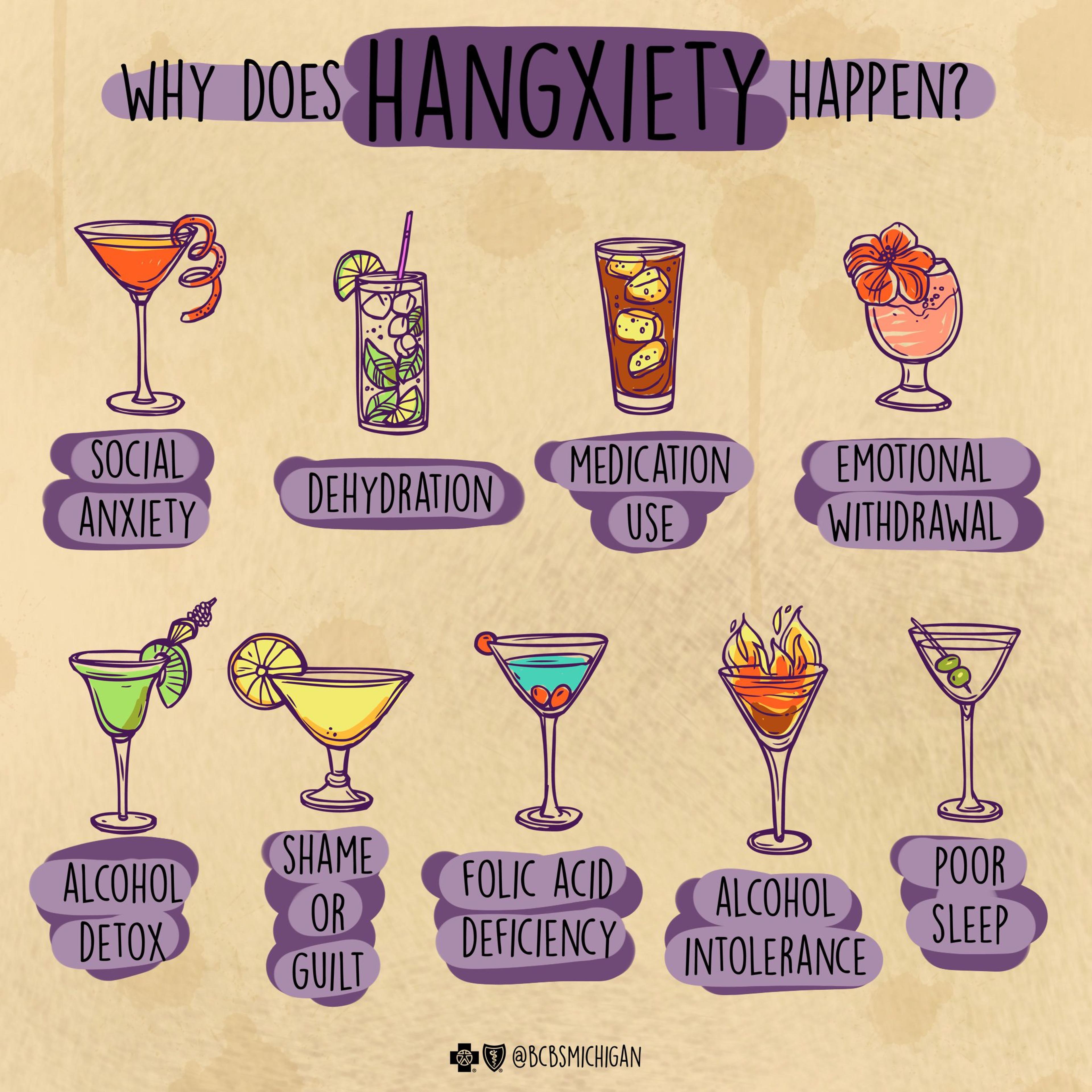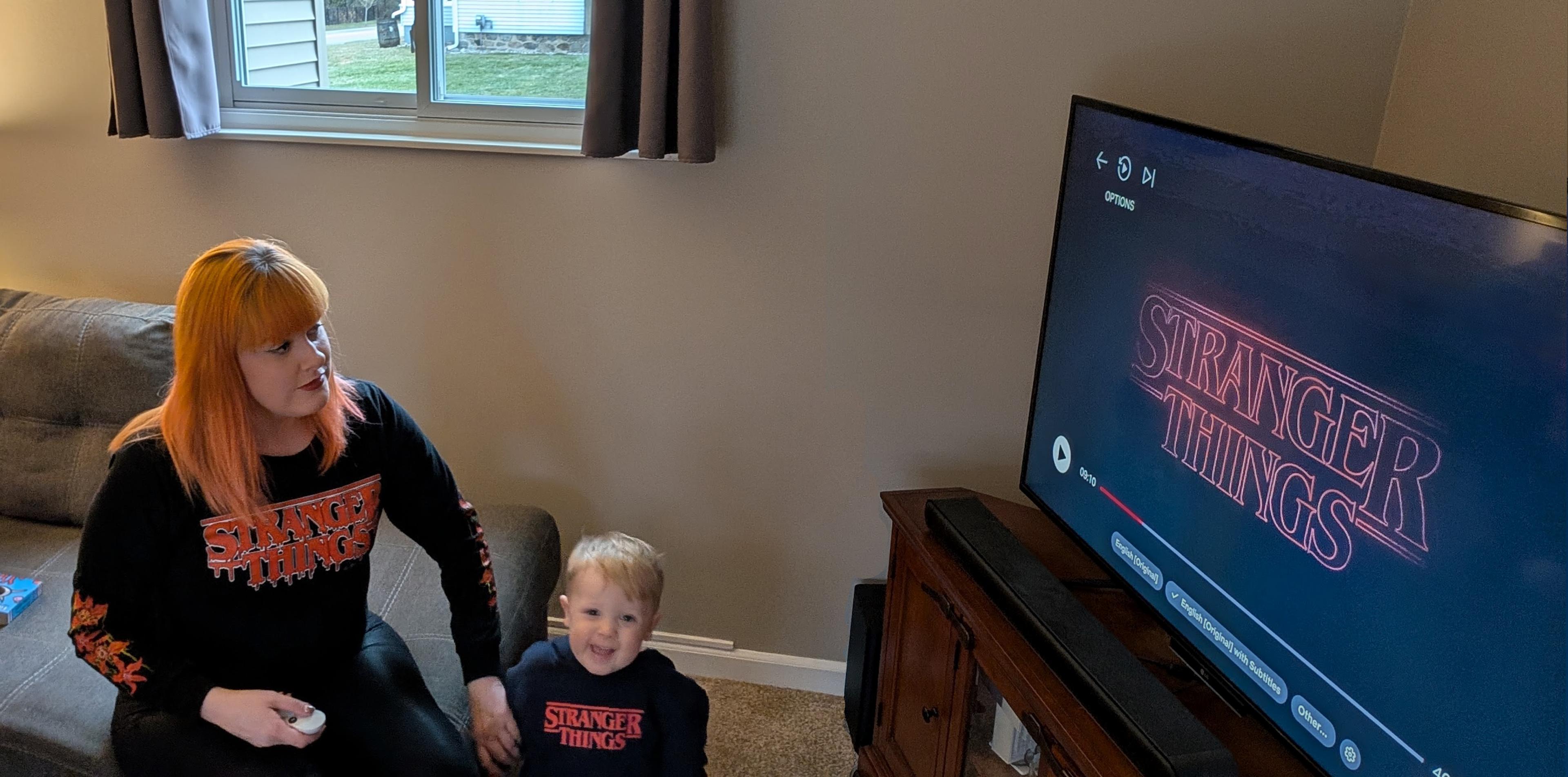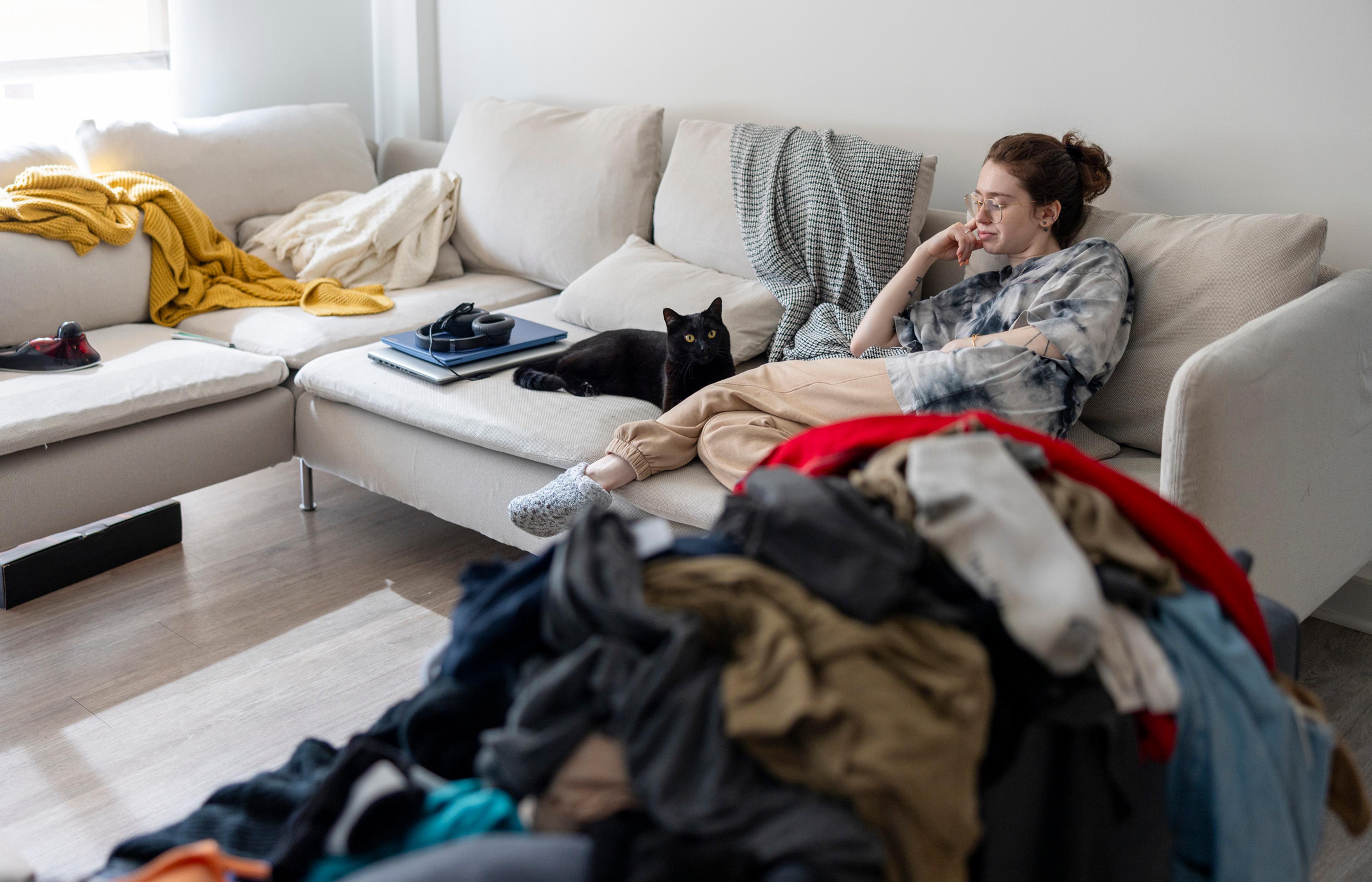Hangover Anxiety: What to Know About ‘Hangxiety’
Shandra Martinez
| 3 min read

Drinking too much alcohol can lead to some negative things. It leaves people reaching for pain relievers to lessen a headache, or sunglasses to dim the painful feelings of too-bright daylight. Others keep refilling their water glass because they’re so dehydrated. These are classic hangover symptoms. Yet some people find the lingering effects of too much beer, wine or liquor will also affect their mood and mental health, causing day-after anxiety. This kind of hangover anxiety as been coined by some as “hangxiety.”

What is hangxiety? Hangxiety is a feeling of stress some people experience as part of a hangover, or even for several hours after alcohol has left their system. If someone experiences this, it can mean their immune system is temporarily depressed, their stress hormones are increased and their bodies are having a difficult time regulating increased feelings of anxiety. If you want to avoid hangxiety completely, it’s best not to drink alcohol at all.
What are the symptoms of hangxiety? These can look different, depending on the person. The symptoms of hangxiety can range from someone feeling a little unsettled or jittery – similar to the feeling one might have if they drank too much coffee – to more severe cases that some have described as feeling like a prolonged panic attack. Some symptoms of hangxiety include:
- Increased heart rate
- Higher-than-normal blood pressure
- Persistent worry about things you may have done or said while you were intoxicated
- Not being able to calm your thoughts
What causes hangover anxiety? So far, research has not pinpointed one specific cause. There could be several factors that determine if someone is more prone to anxiety during a hangover, according to an article in Healthline. Here are some possibilities:
- Dehydration: The more a person drinks, the more dehydrated they are likely to become. Dehydration can worsen feelings of anxiety.
- Medication: Some medications can react negatively – or work less effectively – when paired with alcohol. If someone is taking medication for a mood disorder or anxiety, drinking can mean their medication won’t work as well, leaving them feeling more unsettled.
- Lack of sleep: Not enough sleep or poor quality sleep after drinking too much can leave some people feeling more anxious.
Can this kind of anxiety be treated? The best place to start on the path to feeling better is to treat any physical symptoms first. Once your body is feeling better, your mental health will likely follow. Some tips for lowering hangxiety affects:
- Drink plenty of non-alcoholic fluids. Water is best, but herbal teas and sparkling water are fine, too.
- Treat a headache. An over-the-counter pain reliever can be used.
- Take a shower. Massage your head and scalp under warm water.
- Eat a light, healthy meal. Avoid fatty or greasy foods. Try toast and a scrambled egg.
- Take a nap. If you can’t sleep, at least close your eyes and try to rest your body.
Related:
Photo credit: Getty Images





